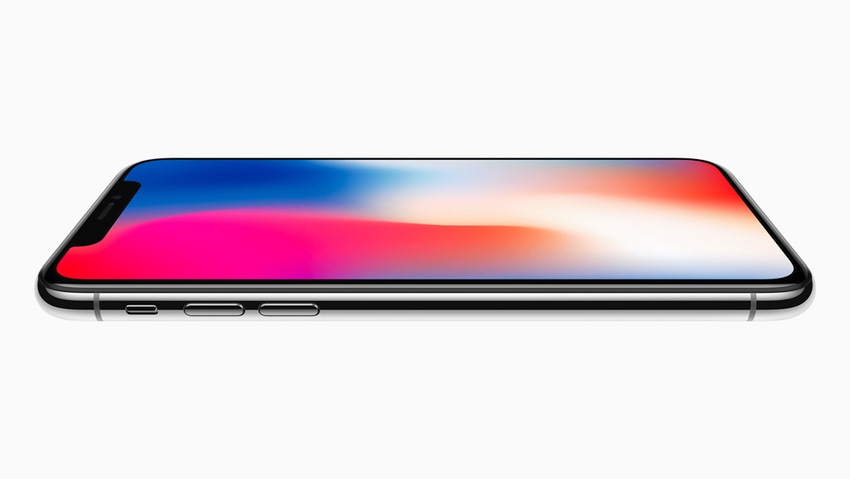3 Reasons UX/UI Is Important for Hardware Products
As engineers, we must embrace the idea that a well-designed user experience and user interface can be the key to the success or failure of a hardware product.

|
The design of products like the iPhone X (shown) demonstrate the imporantance of great UX/UI in hardware products. (Image source: Apple) |
While we often think about user experience (UX) and user interface (UI) in the context of software, let’s not forget how crucial UX/UI can be in the development of hardware products. Sometimes UX/UI is the only or main differentiator in a company’s products and can be the key to the success or failure of a product.
As engineers, particularly those involved in projects invoking Department of Defense (DoD) specifications, UI in the hardware world is often perceived as meeting human interface specifications. And while this certainly is part of the UI story, the total story of UX and UI is much greater than meeting government specification, which are driven by the need for operational efficiency.
The full UX/UI portfolio is not just functional, but a tie into the emotional attachment to a product.
Here are some reasons why UX/UI considerations are important when developing hardware products:
1.) Well-Designed Products Work Better
There are discrete, measurable parameters that can be implemented when designing a UI. It can be as simple as arrangement of physical controls, arrangement of operations on a touchscreen display, control heights, reach, etc. Those are purely functional requirements that lend toward making a product easier to use.
In addition to the functional requirements, there are other factors in the user experience that also lead to better operation. Things like color choices, textures, and the feel of various controls can also help attract attention to the best use of complex systems.
UX includes understanding how the product fits within the user’s lifestyle and then designing the physical UI that ideally blends in with that lifestyle. Factors such as where a user will interact with the product, how often, in what kind of environment, and understanding what users view as a well designed product, all play a role in this. Often such information is collated into collateral outlining fictional personas reflecting various classes of key users. These are important factors in designing a product that fits with the users’ needs and expectations.
RELATED ARTICLES:
2.) Great Design Makes Users Feel Good About Using the Products
Auto manufacturers spend a lot of time concerned with small details that impact the user experience. These include things like how a knob feels when it is turned, the sound quality of alarms and notifications, and how the door sounds when it is closed. These considerations are all important because they are subliminal ways that buyers assess the quality of the vehicle.
Though seemingly mundane, packaging design is also important. Apple set the bar very high when it comes to packaging. How you open the package containing an Apple product is a matter than has been carefully studied and modeled to create a positive feeling that is akin to opening a treasure chest. It is a model that other top-tier cellphone companies are now embracing. Products like the Sonos home audio system also reflect a lot of thought as to how the customer opens the package and finds the product and peripherals within.
You can probably think of other experiences unpacking products where you were forced to deal with all kinds of crudely-designed packaging made up of cardboard, foam, impossible-to-tear plastic, blister packs, and other pieces. Think about how you felt unpacking these products versus the last time you unpacked an iPhone. Apple's packaging enhances your perception of the brand.
Tech reviewer Marques Brownlee's video of an iPhone X unboxing demonstrates Apple's attention to packaging design. |
3.) Good Design Builds Brand Loyalty
Well-designed products lead to repeat business. When the UX is included in the design thinking, the customers become “disciples” of the brand and not just repeat buyers. Those customers with brand loyalty are not only impacting their own buying decisions, they are often influencing others. In the technology space especially, early adopters are highly sought-out as they often have tremendous value as influencers. Companies go to a lot of trouble to build these informal, yet powerful, networks.
Again, using Apple as an example, brand loyalty is virtually the key factor in them building repeat business. From a purely functional standpoint, the current generation of iPhones are not the most technically advanced products. From an innovation and pure specification viewpoint, one might find Samsung phones to be the market leader. But the Apple brand loyalty built over many years by concentrating on optimizing the user experience, combined with a slick and highly functional UI, keeps the customers coming back every time there is a new product release. All this flows from a positive (and ideally delightful) user experience.
ESC BOSTON IS BACK! The nation's largest embedded systems conference is back with a new education program tailored to the needs of today's embedded systems professionals, connecting you to hundreds of software developers, hardware engineers, start-up visionaries, and industry pros across the space. Be inspired through hands-on training and education across five conference tracks. Plus, take part in technical tutorials delivered by top embedded systems professionals. Click here to register today! |
Mitch Maiman is the President and Cofounder of Intelligent Product Solutions (IPS). He honed his deep knowledge of product design on the strength of a 30-year career with companies that manufacture commercially successful products for the consumer, industrial, and DoD markets. Prior to launching IPS, Mitch was VP of Engineering at Symbol Technologies. He can be reached at [email protected].
About the Author(s)
You May Also Like





.jpg?width=300&auto=webp&quality=80&disable=upscale)

